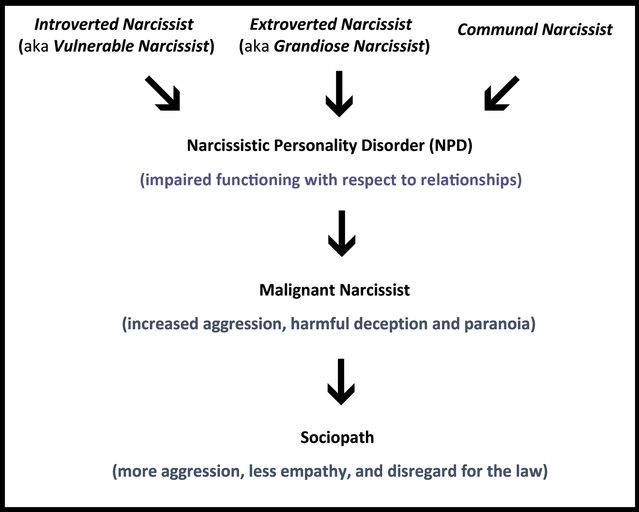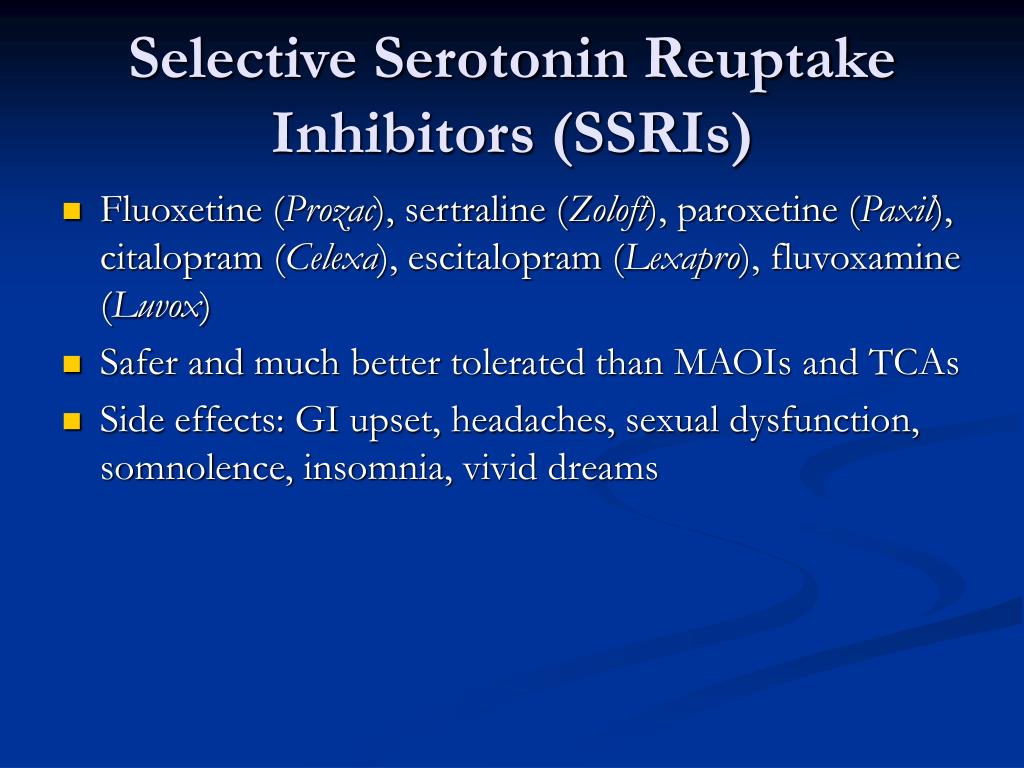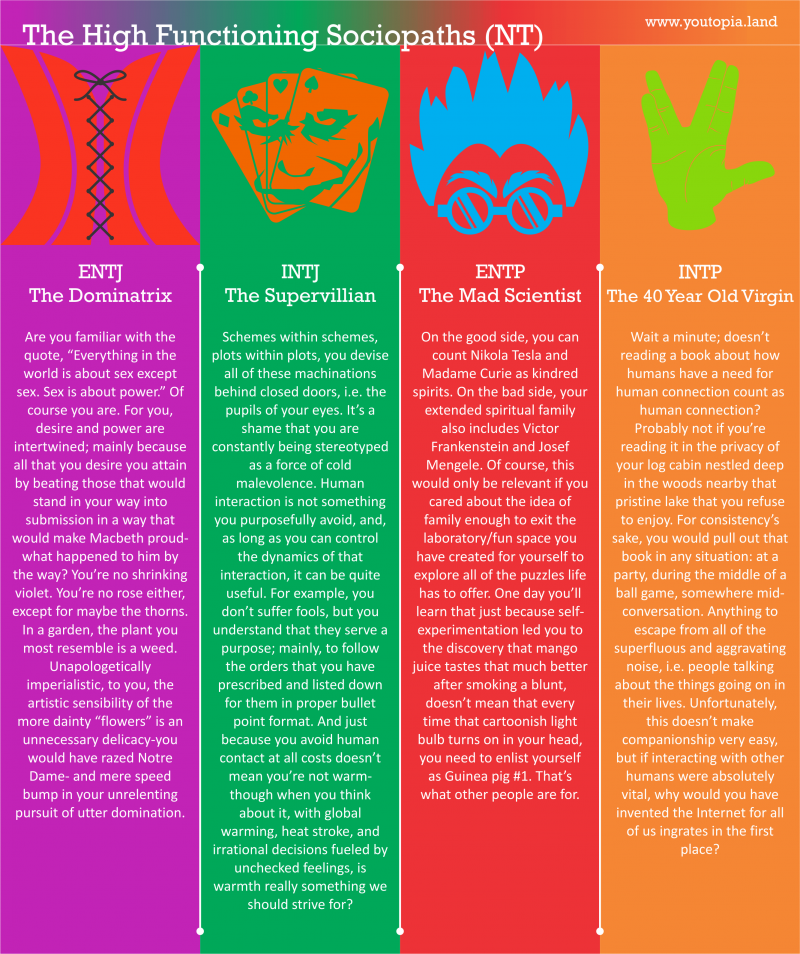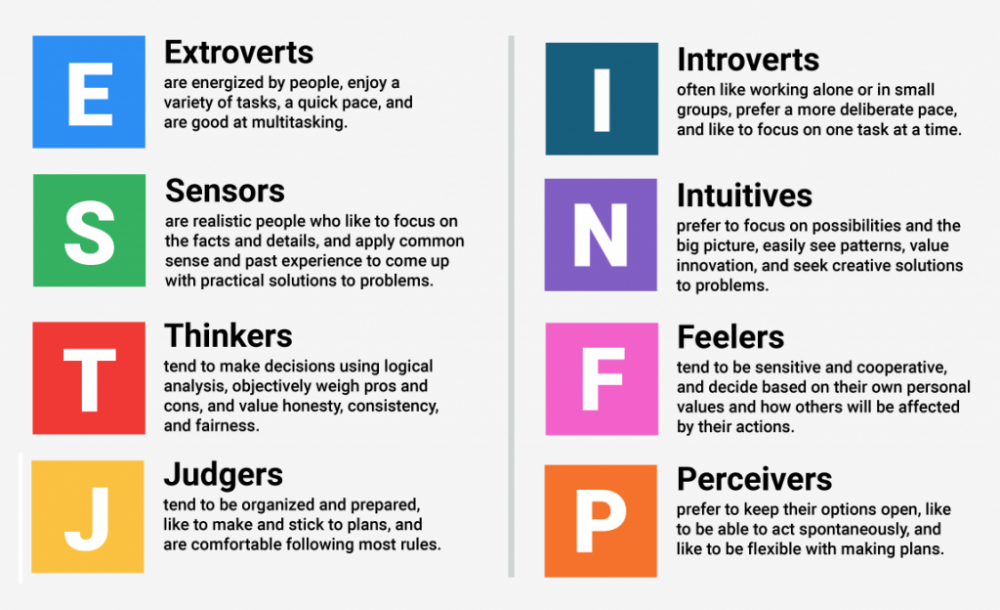Dependence on therapist
Is it possible for a client to become dependent on therapy?
Question: Is it possible for a client to become dependent on therapy, perhaps as the only satisfying relationship they have?
Answer (1) Being initially dependent on therapy is usually treatment phase related and a common enough phenomenon. However, one of the main ideas of therapy as I understand it, is to eventually free the client up enough from whatever is blocking them, to seek out, pursue and manage healthy relationships outside of therapy. The very nature of the therapeutic relationship is to stimulate but not necessarily to gratify ones' needs. It is supposed to be, "an as if experience" and therefore if conducted responsibly, is fundamentally, somewhat frustrating. If the therapy is too gratifying and the experience becomes overly comforting, a sort of addiction to it and the therapist is certainly possible and we then have what Freud called, an interminable therapy.
That is, one that cannot be properly brought to a mutually satisfactory conclusion.
Answer provided by David White, Psychotherapist
Answer (2) Anything is possible, but good therapy should assist you with creating the life that you want and moving ahead - including acquiring quality relationships. If serious dependence develops (which it theoretically shouldn't, but could), then it may be time to review and update the issues that you are working on, one of which may be the dependence! A degree of dependence is OK - that's the point of therapy, to provide you with a reliable supporter and problem-solving resource - but a good therapist will assist you to become stronger and increasingly independent.
Answer provided by Stephanie Thompson, Psychologist
Answer (3) The simple answer to your question is a definite yes. However this is not a trivial question and deserves a full answer. This is what I think. Often when clients arrive for therapy, they come because they have found it intolerable to live with their current life-situation. It's not surprising to learn that they have tried all sorts of ways to overcome the aspects of their life-situation that give them distress. They may have found that they are unable to depend on their well worn ways of coping - often negative coping mechanisms such as addictions including workaholism, substances, promiscuous sex and so on. The client may find no solace in family interactions and most friends are simply unable to help without trespassing and taking up emotional space that does not belong to them. At this stage the client might be isolated and having to carry on as though they were independent.
Often when clients arrive for therapy, they come because they have found it intolerable to live with their current life-situation. It's not surprising to learn that they have tried all sorts of ways to overcome the aspects of their life-situation that give them distress. They may have found that they are unable to depend on their well worn ways of coping - often negative coping mechanisms such as addictions including workaholism, substances, promiscuous sex and so on. The client may find no solace in family interactions and most friends are simply unable to help without trespassing and taking up emotional space that does not belong to them. At this stage the client might be isolated and having to carry on as though they were independent.
If all goes well in therapy, the client will embark on and complete a journey, starting at unhealthy independence, travel via dependence (for a time) and eventually arrive at healthy interdependence. Interdependence is the healthy state of equilibrium for human beings because there is both give and take. However to get to interdependence the client may for a time become quite dependent on the therapist. This could feel like the only satisfying relationship the client has as you have written in your question. It could also feel like the only hour a week when everything seems manageable and in perspective. Like it or not clients then have to live for another 167 hours a week in which they progressively learn to put in place some of the insights and changed behaviours they and their therapist have talked about.
However to get to interdependence the client may for a time become quite dependent on the therapist. This could feel like the only satisfying relationship the client has as you have written in your question. It could also feel like the only hour a week when everything seems manageable and in perspective. Like it or not clients then have to live for another 167 hours a week in which they progressively learn to put in place some of the insights and changed behaviours they and their therapist have talked about.
Once again if all goes well, clients will develop their own internal therapist who grows stronger over time and eventually replaces the therapist they have been paying to see. Certainly both client and therapist will change as a result of any therapeutic engagement and in particular the therapist will grow in experience and understanding. It is not possible to have a therapeutic arrangement where both parties do not affect the other. I hope my answer is of some use to you.
Answer provided by Scott Jordan, Psychotherapist
Answer (4) We crave connection of some sort. The experience of meeting and discussing highly personal and private thoughts, feelings and conduct with a receptive, non-judgemental, person can take on a meaning for the client beyond its true importance as a professional, objective, humane therapeutic episode. You might want to discuss this with your therapist, I am sure s/he would want to help you work through this. For me no matter how long or brief the therapy is, it is part of my therapy with clients to plan for a proper ending of the relationship without feelings of loss or abandonment. Without dialogue about the process, the therapeutic relationship may become another barrier to moving on to a more independently functioning life.
The experience of meeting and discussing highly personal and private thoughts, feelings and conduct with a receptive, non-judgemental, person can take on a meaning for the client beyond its true importance as a professional, objective, humane therapeutic episode. You might want to discuss this with your therapist, I am sure s/he would want to help you work through this. For me no matter how long or brief the therapy is, it is part of my therapy with clients to plan for a proper ending of the relationship without feelings of loss or abandonment. Without dialogue about the process, the therapeutic relationship may become another barrier to moving on to a more independently functioning life.
Answer provided by John Hunter, Counsellor
Answer (5) The question you raise is an excellent one. I would suggest that a level of dependency occurs in all relationships, including therapeutic ones such as with counsellors, doctors, and other therapists. This is because dependency is an immutable aspect of Relationship. Whilst currently popular in psychological and self help literature, it is however too simplistic a notion that dependency is 'bad' and independence is 'good'. Like yin and yang, both are aspects of all our relationships. As infants we are entirely dependent on our parents for all our needs; as adults, we are dependent on a much broader range of people to meet our needs. We also develop a level of independence - which means the ability to meet and satisfy our own wants and needs without input from others. It has been discussed since the time of Freud, that dependence is in fact critically important for therapy to be effective. Through allowing ourselves to trust another and receive help from them, we are choosing a level of dependence - we are seeking to have some need met - whether it is to be heard, to be validated, to be challenged, to be educated etc.
Whilst currently popular in psychological and self help literature, it is however too simplistic a notion that dependency is 'bad' and independence is 'good'. Like yin and yang, both are aspects of all our relationships. As infants we are entirely dependent on our parents for all our needs; as adults, we are dependent on a much broader range of people to meet our needs. We also develop a level of independence - which means the ability to meet and satisfy our own wants and needs without input from others. It has been discussed since the time of Freud, that dependence is in fact critically important for therapy to be effective. Through allowing ourselves to trust another and receive help from them, we are choosing a level of dependence - we are seeking to have some need met - whether it is to be heard, to be validated, to be challenged, to be educated etc.
Therapy can be deeply satisfying, as it may be one of the only places in a person's life where they can reveal any aspect of self in an atmosphere of safety and acceptance. In this way, therapy is a surreal environment. But the therapeutic relationship does allow for the individual to work on his or her self, strengthen identity, and develop new skills or approaches before trialing them in real-world relationships. Sometimes our growth will require us to become more dependent; to ask for help, to recognize we need others etc. At other times, we will strive for more independence by testing our own limits or meeting our own needs. As Scott Jordon has responded, one of the integral aspects of good therapy is to internalize the useful qualities, knowledge or skills from your therapist. I would recommend that rather than adopt a dualistic view of dependence as healthy/unhealthy, that we instead look at how and where we are dependent and independent. Even so-called unhealthy dependence must somehow be working for us - perhaps it is keeping us from being alone, perhaps it provides financial support. If we simply bring our awareness to these aspects of our relationships, we are in a better position to make choices - perhaps we sort out our financial situation so we have more freedom than dependence in a particular relationship.
In this way, therapy is a surreal environment. But the therapeutic relationship does allow for the individual to work on his or her self, strengthen identity, and develop new skills or approaches before trialing them in real-world relationships. Sometimes our growth will require us to become more dependent; to ask for help, to recognize we need others etc. At other times, we will strive for more independence by testing our own limits or meeting our own needs. As Scott Jordon has responded, one of the integral aspects of good therapy is to internalize the useful qualities, knowledge or skills from your therapist. I would recommend that rather than adopt a dualistic view of dependence as healthy/unhealthy, that we instead look at how and where we are dependent and independent. Even so-called unhealthy dependence must somehow be working for us - perhaps it is keeping us from being alone, perhaps it provides financial support. If we simply bring our awareness to these aspects of our relationships, we are in a better position to make choices - perhaps we sort out our financial situation so we have more freedom than dependence in a particular relationship.
Answer provided by Michelle McClintock, Psychologist
Answer (6) The above answers to your question are so excellent that I am released to take up the reciprocal of your enquiry. Is it possible for a therapist to become dependent on providing therapy as the only satisfying relationship he or she has? The stories of children of therapists say the answer is for some, a resounding yes. For example: "A surprising number of children believed that their parents themselves had found in their practice a surrogate life that was both richer and less personally demanding than their own lives." Interview with Thomas Maeder, author of Children of Psychiatrists and Other Psychotherapists "To hear some therapists' kids tell it, their parents saw so many problems that they had formed the notion - or at least communicated it to their children - that most marriages were loveless and rotten, and houses were closet dens of iniquity." His advice "Anything that is obviously identifiable as being psychotherapeutic probably does not belong in the parent-child relationship. "
"
Anne Wilson Schaef gave testimony to her relationship addiction in her exodus from a contemporary psychotherapy practice in the book, Beyond Therapy, Beyond Science. She offers as a dedication her release from the codependency of therapist on client: 'I dedicate this book to all of my clients for whom I had goals and knew what was right for them and what would heal them. I began to see that setting goals was a form of control. I was arrogant and out of line. ... I was operating out of a series of assumptions that I was taught in my training that I now know frequently exacerbated the problem and facilitated my clients' adjustment into an addictive, sexist, racist, self-destructing society, and I am sorry for that.' The book was an important part of her recovery as a psychotherapist. There are layers and layers of privilege and dependent co-evolution in both client and therapist sharing the business of therapy. 'The universe is like a puzzle and each one of us is part of that puzzle. No-one else can take our place in the puzzle.'
No-one else can take our place in the puzzle.'
It is no small challenge to stay honest and clear about our dependence when we work within an industry that succors addictive behaviour. 20,000 self help book titles listed on amazon.com is a fraction of the supply line. In Buddhism, the hungry ghost is insatiable. How often did you check the forum this week?
Answer provided by Peter Fox, Clinical Psychologist
Back to Public Forum
The Darker Side of Therapy
By Sonia Neale on September 21, 2009
There is a dark side to therapy that nobody wants to talk about; even therapists, especially therapists. Its a Catch-22 where emotionally-promiscuous clients quickly fall into dependency with their therapists and problems occur when dependency, instead of the original problem, becomes the main issue. Weaning yourself off your substitute mother/therapist can be like trying to forcibly remove a security blanket from a two-year-old or an attempt to separate the ingredients of a corrupt Hollandaise sauce after the egg has curdled.
Michael G. Conner, Psy.D, author of the internet article, Transference: Are You a Biological Time Machine? gripes that Transference is really difficult to recognize, deal with and understand, but it is incredibly interesting. I tend to avoid people who are “oozing” with transference potential. His attitude is not uncommon as Borderline Personality disordered clients, seen by many as the cane-toads of Therapy World, tend to ooze transference. Seen in another light – dramatic, intense, super-heated, fierce and impassioned, but controlled and regulated thoughts, feelings and behaviours where you have easy access to powerful emotions can be an amazingly vital and life-giving source of art; think Sylvia Plath, Vincent Van Gogh, Brian Wilson, Patrick Swayze, Marilyn Monroe or Heath Ledger.
Borderlines in therapy are hard work, and their recovery never follows the straight, narrow and linear path from problem to solution in twelve Medicare-covered insurance appointments that the Australian government would like us to believe. It took me fourteen years to learn that the Art of Borderline is in mindfulness, not madness. Its in the knowing, harnessing, concentrating, focusing and sitting in the moment long enough to capture, guide and mold the lingering essence of the raging storm into something creative and constructive. Overweened therapy is not part of this process. When an emotionally intense person gets hooked on therapy, its hard to give up that dependency and become your own person; you just want to get legally adopted by your therapist and walk together hand in hand towards the quintessential sunset. So while those emotions dont just disappear overnight, they do have to go somewhere else.
It took me fourteen years to learn that the Art of Borderline is in mindfulness, not madness. Its in the knowing, harnessing, concentrating, focusing and sitting in the moment long enough to capture, guide and mold the lingering essence of the raging storm into something creative and constructive. Overweened therapy is not part of this process. When an emotionally intense person gets hooked on therapy, its hard to give up that dependency and become your own person; you just want to get legally adopted by your therapist and walk together hand in hand towards the quintessential sunset. So while those emotions dont just disappear overnight, they do have to go somewhere else.
Here are ten methods I have found helpful.
1. The Perfect Person.
Your therapist is not perfect. But just because she doesnt remember the name of your favourite teddy-bear when you were six years old doesnt mean she doesnt care for you during the therapy hour or even sometimes outside it. Like electricians living in houses with blown light globes, non-working ovens, and live wires hanging out of random walls, dentists with cavity-ridden children or psychologists with badly behaved teenagers (actually they are the worst) and nurses who hate looking after sick family members; your therapist, when she leaves her office for the night does not want to deal with her family, her friends or anyone elses problems, let alone your extra-curricular 3am emails, phone calls or text-messages. She just wants to chill out with a bottle of wine in front of Desperate Housewives or South Park like everyone else and have a long hard bitch about her day.
Like electricians living in houses with blown light globes, non-working ovens, and live wires hanging out of random walls, dentists with cavity-ridden children or psychologists with badly behaved teenagers (actually they are the worst) and nurses who hate looking after sick family members; your therapist, when she leaves her office for the night does not want to deal with her family, her friends or anyone elses problems, let alone your extra-curricular 3am emails, phone calls or text-messages. She just wants to chill out with a bottle of wine in front of Desperate Housewives or South Park like everyone else and have a long hard bitch about her day.
2. Literal -v- Symbolic
Therapy is role-playing. Your beloved therapist is role-playing your symbolic mother. She is not your biological one. This is a phenomenon Ive had trouble coming to terms with. Therapists get quite frightened and tend to mutter the T word (termination) ominously when this happens. I get angry when she is not available 24/7 but I do have to remember I am not two-years-old and pre-verbal. I am a grown-up woman who can look after herself and her family.
I get angry when she is not available 24/7 but I do have to remember I am not two-years-old and pre-verbal. I am a grown-up woman who can look after herself and her family.
3. Exorcise dependency needs from your therapist.
And I mean that in the nicest possible way. Ritualize the exorcism if you like. Light a scented candle to symbolize the removal of dependency and transference needs, at the same time building up and retaining the not-so-subtle nuances of the nature, spirit and intense oxygen-giving, red-cell life-blood of being that was once you and her merged in a symbolic relationship, and use that intensity in other areas of your life. Internalize the lessons learned, re-experience the warm, rich, acute brain feelings of those aha moments. Un-enmeshing and un-entwining, but remembering with loving/kindness takes time, patience, motivation and practice. Instead of thinking what my therapist would do in a certain situation, I think what I would do, with the knowledge and power I now possess, thanks to her tender care and kindness.
4. The Internalized Therapist.
I have to remember always what I have learned, in a healthy, healing, mindful manner. That is the embodiment of good emotional-regulation. Sitting in those brain-storm moments of overwhelming feelings, working out what they are, where they came from and finally realizing I do not have to act on them. I can have Grace on one shoulder and Dignity on the other and my Internalized Therapist sitting, Buddha-like, in the middle coalescing and fusing with my highest chakras, harmonizing with what I have learned from her to make me who I am today. I know, in that respect, she will always be with me.
5. Move On.
When you feel as though you have learned everything about yourself and you are wondering if you are just seeing your therapist for coffee and a chat, its time to reassess why you are still going to see him/her. Are there issues you have not dealt with or do you just enjoy a loving, motherly chat? I had to sweep aside with an iron broom the self-deception, repression and ultimate denial as to my reasons for still ringing up and booking those appointments. I sometimes forget I am well now.
I sometimes forget I am well now.
6. Keep yourself busy.
Plan your day as best you can. I hate routines and boundaries but they work when I adhere to them. I learned that in a psychiatric hospital. Physical, emotional, mental and spiritual busyness can keep your mind off the fact that therapy is no longer available. When Im at work Im finally me, without the lingering therapy-ghost hanging around Drop Dead Fred style. There are plenty of times I no longer feel umbilically attached to someone who is not a huge part of my daily physical life now.
7. Replace therapy with something you love.
I love writing, it gets me into the zone, a space where I can recreate myself, discover my potential and create a vibrant headspace where I fully believe I am ok and fit into the cogs and wheels of a rapidly spinning world. Some people knit, garden, paint, crotchet, make china dolls, play guitar, cook new food recipes, fly model airplanes, get a dog or a cat to pour their love onto (just dont call it by your therapists name).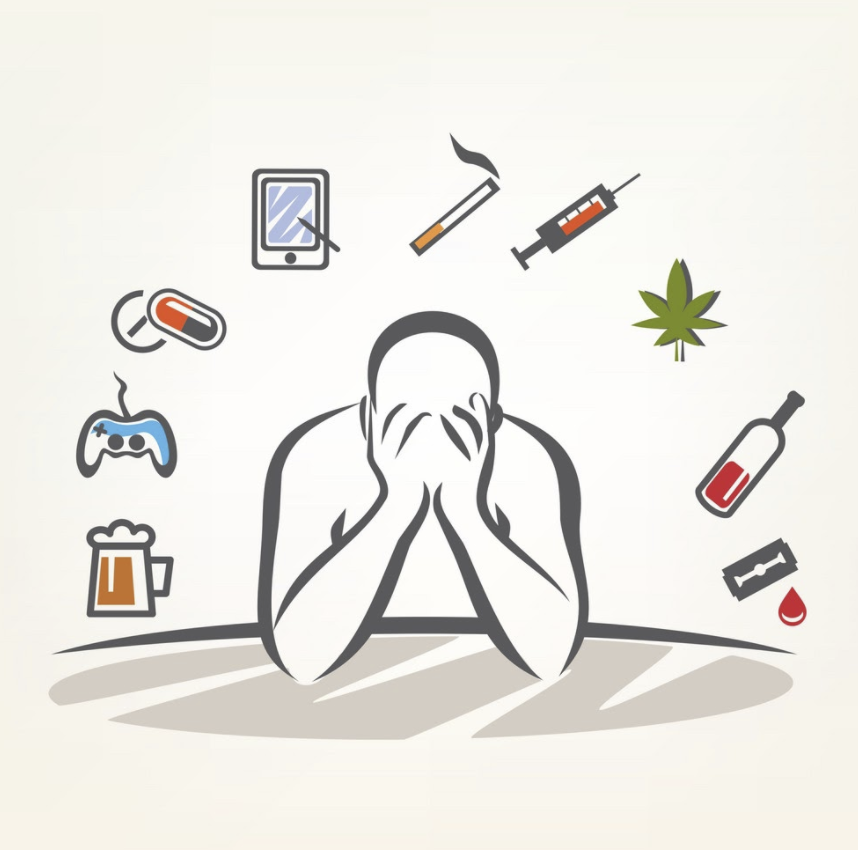 It doesnt matter what you do as long as it gets you into the zone where your mind slows down to a set-point where some form of balance, rationality and stability kicks in. Sometimes for me, cleaning the bathroom and toilet calms me down.
It doesnt matter what you do as long as it gets you into the zone where your mind slows down to a set-point where some form of balance, rationality and stability kicks in. Sometimes for me, cleaning the bathroom and toilet calms me down.
8. Enlighten yourself with education, intellectualism and rationalism.
You dont need to enroll in a psychology degree to educate yourself on the role the amygdala and hippocampus play in your Post Traumatic Stress Disorder or permanent hyper-vigilant state. Google search for insightful articles on anything psychologically related, although I guess if you are reading this you have already discovered the power of the internet. Anger, rage and hostility are the biological reactions where stress incites our amygdala to produce copious amounts of cortisol, the stress hormone which can cause us Borderlines to go postal. Falling Down, anyone? I have an overactive amygdala which means when someone gets in my face or thwarts my goal, I channel bunny-boiler Glenn Close and think my head is about to explode. Learn about your brain, educate yourself in alternative behaviours other than smashing a cup or a plate on the floor and watching and feeling the subsequent dissociated, unflinching nothingness as the shattered rippling effect of china shards fly all over the place; followed by a feeling of high justification. I was always mindful enough to use the cheap china. I never once smashed a piece of Wedgwood or Royal Doulton.
Learn about your brain, educate yourself in alternative behaviours other than smashing a cup or a plate on the floor and watching and feeling the subsequent dissociated, unflinching nothingness as the shattered rippling effect of china shards fly all over the place; followed by a feeling of high justification. I was always mindful enough to use the cheap china. I never once smashed a piece of Wedgwood or Royal Doulton.
9. Forgive yourself for having extremely harsh and protracted emotions.
This is a tough one, especially if you set high standards for yourself. It wouldnt occur to you to need to forgive yourself for diabetes, kidney cancer, a stroke, a heart attack or a broken leg. So forgive and be kind to yourself for having a biological pre-disposition towards unholy emotions but know that there is something you can do about it.
10. Cold Turkey.
When all else fails theres cold turkey. Hot turkey is something I have once a year at Christmas – hot, smelly, dry, and stringy and for some reason has a most repressive and foreboding taste. So you can imagine what cold turkey tastes like. But sometimes it can be a most palatable dish when the alternative is to mainline that infected needle of endless therapy and wait for that warm, nurturing but ultimately self-destructive rush to kick in.
So you can imagine what cold turkey tastes like. But sometimes it can be a most palatable dish when the alternative is to mainline that infected needle of endless therapy and wait for that warm, nurturing but ultimately self-destructive rush to kick in.
How addiction to a psychologist / psychotherapist is formed, Psychotherapy - Gestalt Club
Usually get addicted to someone / something (partner, specialist, organizations and communities) are afraid of people with poor borders. It is difficult for them to distinguish between addiction and attachment, real rapprochement, due to traumatic experience. In such situation, even if you really want to trust someone, it is extremely difficult to do this, It's scary and there are no guidelines at all. In this article I will describe phenomena of the formation of dependent / healthy relationships in the context therapeutic space. nine0003
Any regular, lasting for some appreciable time The relationship between the client and the therapist is built on the creation of a unique client-therapeutic alliance, which, depending on whether transfer that the client generates will be similar to either a relationship parent and child, or two adults. Transfer is a thing unconscious and is formed by the client based on his own experience, which he brought into therapy, and which demands to open up in relationship with the therapist to be completed.
Transfer is a thing unconscious and is formed by the client based on his own experience, which he brought into therapy, and which demands to open up in relationship with the therapist to be completed.
therapeutic space is part of the process, directly correlated with its effectiveness. Not even formed some seedy alliance - consider it rubbish. The counter-dependent client will be very frightened, noticing that this connection arises and seeks to flee before it is too late and addiction developed. Thus depriving oneself of the chance to observe yourself in your fear, explore it with your therapist and get out from his traumatic labyrinth with new experiences, where he devoured by wild animals as soon as he opened himself. nine0003
However, dependence on a therapist develops in a completely different way. laws. If you really think that you have dependence on your psychologist, pay attention to how your contact with him is being built. If a psychologist constantly gives you tons recognition, acceptance, praises and shows you only caring interest, you feel good with him, like mom under the wing (not important - did you have a mother, and does she look like a therapist) - rather of everything, he does not work with you, but forms a dependent relationship. To you no need to work hard. You are given lungs, not defiant no discomfort of the task, performing them you feel almost children's excitement, inspiration, its significance and uniqueness, and if that's all - you are just being emotionally stroked. People with injuries rejection is very pleasant and valuable, and even, perhaps a little useful (you can warm up, get a feeling of being needed), but to Unfortunately, this approach will certainly form a person with bad boundaries, having a traumatic experience is not a healthy attachment, but it is dependence, which over time itself will require additional therapy. There is nothing to say that except harm, special Benefits such relationships, in general, do not bring. Even if the money is not large - you still consider them to be thrown away. nine0003
To you no need to work hard. You are given lungs, not defiant no discomfort of the task, performing them you feel almost children's excitement, inspiration, its significance and uniqueness, and if that's all - you are just being emotionally stroked. People with injuries rejection is very pleasant and valuable, and even, perhaps a little useful (you can warm up, get a feeling of being needed), but to Unfortunately, this approach will certainly form a person with bad boundaries, having a traumatic experience is not a healthy attachment, but it is dependence, which over time itself will require additional therapy. There is nothing to say that except harm, special Benefits such relationships, in general, do not bring. Even if the money is not large - you still consider them to be thrown away. nine0003
A sign of a healthy client-therapeutic relationship, are good boundaries. When your therapist suggests you take responsibility for the results of your life, when helps to notice the other side of the coin, restore balance, return to adult position. These things are not so pleasant but they help you get in touch with the real state of affairs in your life, and not taken away to the sweet world of dreams, where you are 3 years old, mom loves you and decides everything for you. This world is not really exist. Are you an adult, looking out of your deficits and injuries life is distorted, narrowed somewhere. Childhood is long gone and not return, but in order to get what you want in the present, you have to recognize and move forward. nine0003
These things are not so pleasant but they help you get in touch with the real state of affairs in your life, and not taken away to the sweet world of dreams, where you are 3 years old, mom loves you and decides everything for you. This world is not really exist. Are you an adult, looking out of your deficits and injuries life is distorted, narrowed somewhere. Childhood is long gone and not return, but in order to get what you want in the present, you have to recognize and move forward. nine0003
The therapist sometimes works as a mother, but in order to show you, how you can become it for yourself. He supports you but so that you can learn to walk on your own. Yes, the load is given in that volume that you can withstand, but the load must be constant and increase over time. This approach is always will require you to be involved and invest your own strength, but it is precisely thanks to this, your result is truly yours and no one you cannot take it away from you. You can only claim what who put in his energy. Therefore, working with professionals makes you stronger and more independent, and not vice versa. nine0003
Therefore, working with professionals makes you stronger and more independent, and not vice versa. nine0003
3 steps to get rid of emotional dependence on a psychologist, psychotherapist - article by Anna Stepanyan
Error get alias
© ARTICLE ANNA STEPANYAN
What to do if you become emotionally dependent on a psychologist
Watch my video on this topic
In this video, I will analyze an interesting topic, both for psychologists and psychotherapists, and for the clients themselves, the topic of dependence on a psychologist and a psychotherapist.
Detailed article about addiction from a psychologist
The article consists of the following paragraphs:
1. What is dependence on a psychologist and how it manifests itself
2. Types and causes of addiction in clients
2.1. Neurotic dependence
2.2. Possible reactions of a psychologist/psychotherapist to a client's addiction
2. 3. Dependence on the result
3. Dependence on the result
3. How to get rid of dependence on a psychologist, psychotherapist
Dependence on a psychologist - definition
- the psycho-emotional state of the client, which manifests itself in constant obsessive thoughts about the psychologist/psychotherapist, such as: an exaggerated feeling of gratitude, a desire to spend leisure time together, falling in love and sexual desire, an endless need to ask for advice on any occasion.
Dependence manifests itself in obsessive thoughts and states to one's psychologist. The main state experienced by the client is the feeling “I miss you”, the desire to be with a psychologist, to spend not only therapy with him, but also leisure. The desire to share your whole life and all, even the most insignificant impressions. Thoughts and ideas arise about how great it would be to go on vacation with a psychologist, invite him to a restaurant, introduce him to your family, cook your favorite dish for him, give him flowers and gifts, etc. Often, such states and thoughts lead to a non-resourceful state and behavior and interfere with quality therapy. For instance. nine0003
Often, such states and thoughts lead to a non-resourceful state and behavior and interfere with quality therapy. For instance. nine0003
Even at the beginning of my psychotherapy practice, I got into a situation where a client could call me at two in the morning and ask for advice on what to do with her poisoned dog - go to the veterinary clinic or use some kind of improvised means. It was that moment when I realized that it was time to draw boundaries.
Types and causes of dependence
There are two types of dependence on a psychologist or a psychotherapist - neurotic and on the result. nine0003
Neurotic addiction arises as a result of a traumatic experience in childhood, in which a person did not receive enough attention and love from parents or close relatives (brother, sister, grandmother, grandfather, etc.). In situations in childhood, where the child was exposed to rejection or violence, either moral or physical, from parents, an internal deficit is formed in an adult. In the future, such a deficit is felt unconsciously, as a state of inner emptiness and meaninglessness, which a person fills with all sorts of forms of self-destruction (overeating, smoking, alcohol, soft and hard drugs, religious or any other sectarianism, toxic relationships, constant change of sexual partner, workaholism, uncontrollable thirst money, power and fame, chronic diseases). nine0003
In the future, such a deficit is felt unconsciously, as a state of inner emptiness and meaninglessness, which a person fills with all sorts of forms of self-destruction (overeating, smoking, alcohol, soft and hard drugs, religious or any other sectarianism, toxic relationships, constant change of sexual partner, workaholism, uncontrollable thirst money, power and fame, chronic diseases). nine0003
Such a person, having come to a psychologist and received the missing resource of attention, understanding and empathy from the psychologist, temporarily feels relieved. Thus, a person unconsciously transfers to the psychologist the role of mother, father, brother, sister, from whom he did not receive the love, care and recognition he needed at one time. In the unconscious, the identity "love = psychologist" is formed. And every time the client feels his inner emptiness, he will unconsciously try by any means to again attract the attention of a psychologist / psychotherapist in order to be filled with love and attention again. nine0003
nine0003
The psychologist/psychotherapist's reactions to the client's addiction
In turn, two types of reactions can occur on the part of the psychologist/psychotherapist - neurotic and professional. In the neurotic behavior of a psychologist / psychotherapist, 2 types can also be distinguished.
The first is when the psychologist is not aware of what is happening and succumbs to the client's initiative, crossing the boundaries of professional activity and time allotted for therapy. That is, the initial working couple client-therapist flows into friendships. Such relationships, apart from a pleasant pastime, do not bring any benefit to the client or the psychologist. The client, in fact, in this case pays for friendship, and the psychologist does not develop as a professional, does not gain invaluable hours of psychotherapeutic experience. nine0003
The second type of neurotic reaction of a psychologist/psychotherapist manifests itself in a form of behavior when the therapist, taking advantage of the vulnerability of the client, manipulates the person in every possible way for personal gain.
The professional type of reaction of a psychologist/psychotherapist is characterized by tracking and understanding the causes of the client's dependence, and his inadequate behavior in relation to the psychotherapist. In this case, an experienced, professional psychologist draws the client's attention to his addiction, thereby keeping the psychotherapeutic tandem in working order. nine0003
Now you know how to easily and quickly distinguish a professional from a "scarce specialist".
Dependence on the result
Dependence on the client's result manifests itself when the psychotherapeutic process has led to a qualitative result, to strong positive changes in life. In this case, a person adds up the unconscious identity "psychologist = result". Thus, each time getting into a difficult situation, the client will identify the psychologist / psychotherapist with the solution of his problems. And instead of trying to solve the problem situation that has arisen on their own, on their own, a person will again and again turn to his psychologist / psychotherapist for help. nine0003
nine0003
It is important to understand that neither psychology, nor psychotherapy, nor psychiatry sets itself the goal of forming an integral, independent, independent, harmonious Personality. To bring out of the crisis and adapt to the current socio-economic system, that is, to make a person “normal”, is the ultimate goal of traditional disciplines related to psychological health. Therefore, the dependence on the result in psychotherapeutic practice cannot be considered and is not considered as something “bad”, pathological. This must be realized when working with psychologists in order to purposefully cultivate one's own inner sovereignty and reserve of vitality. Based on all this understanding, my advice is not to run to your psychologist, even if he is a master of his craft, as soon as you have difficulties. Try to solve the emerging life tasks on your own, with your own strength and capabilities. Perhaps through fear and insecurity. Believe me, Life does not seek to destroy you and grind you to powder. If there are difficulties, then you have enough external and internal resources to solve a particular problem. nine0003
If there are difficulties, then you have enough external and internal resources to solve a particular problem. nine0003
How to get rid of dependence on a psychologist/psychotherapist
The first step is to recognize the presence of addiction and recognize this condition in yourself. In the context of psychotherapy, this is normal. When we recognize and accept our limitations, we have the opportunity to change. Only when the drug addict or gambler admits his addiction is therapy possible.
The second step is to share your experiences, feelings and thoughts about your addiction with a psychologist/psychotherapist. When the process of pronunciation, recognition, sincerity starts, the accumulated discharge occurs. And along with such a psycho-emotional release, there is often a complete release from addiction. nine0003
As a rule, if the psychologist/psychotherapist is sufficiently trained professionally, then the first two steps are enough to get rid of the addiction. However, if the condition still persists and obsessive thoughts about the psychologist do not give rest, this means that the cause of the addiction lies deep in the unconscious. Therefore, the next step is the search and deep study of the cause of dependence on a psychologist.
However, if the condition still persists and obsessive thoughts about the psychologist do not give rest, this means that the cause of the addiction lies deep in the unconscious. Therefore, the next step is the search and deep study of the cause of dependence on a psychologist.
The third step is a qualitative regression processing of a traumatic situation. Repeated recollection and living of traumatic situations releases a huge internal resource. The energy released in this way covers the internal deficit, which formed the client's dependence on the therapist. But, unfortunately, there are very few specialists capable of competently and effectively conducting regression. And the specialist on whom you have become addicted may simply not have regression techniques or generally consider this technique unacceptable. Self-study on the basis of any kind of instructions or books seems unlikely due to many reasons. nine0003
Summary:
Other Articles
Where is fear of transformation, regression, psychologist - Anna Stepanyan article
We analyze in detail the causes of the unconscious protection before internal changes
Regression and practice - theory and practice - Anna's article - Anna article Stepanyan
How the events of past lives affect the current life
Psychology of female archetypes - article by Anna Stepanyan
How hidden women's duties do not allow revealing their archetype and Purpose
How to get rid of fears and worries forever | Author's article by Anna Stepanyan
Article about the causes of socio-psychological fears and anxieties and ways to get rid of
3 steps to get rid of emotional dependence on a psychologist, psychotherapist - article by Anna Stepanyan
obsessive thoughts about a psychologist/psychotherapist, such as: an exaggerated sense of gratitude, a desire to spend leisure time together, falling in love and sexual desire, an endless need to ask for advice on any occasion
Why do you dream of recurring dreams - an article by Anna Stepanyan
Repetitive scenes in dreams are special indicators of the importance of sleep.
